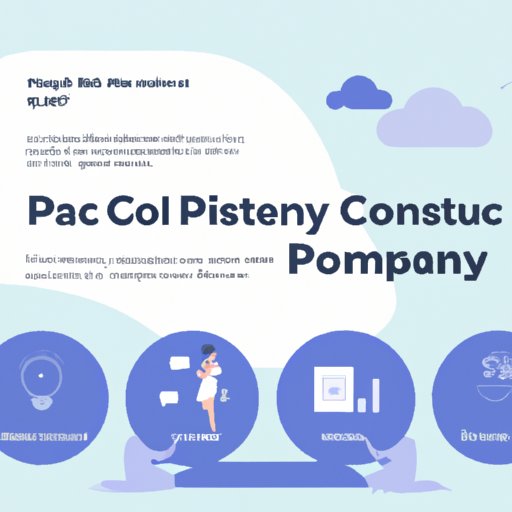Introduction
Consulting is a lucrative business venture that allows professionals to use their expertise to advise clients in their respective fields. Consultants are typically hired to solve problems, provide advice, and offer strategic direction. If you’re thinking of starting your own consultancy, it’s important to understand the benefits and challenges associated with the profession.
First, consultants enjoy the freedom to work for themselves and set their own hours. Additionally, they have the opportunity to build relationships with clients and develop long-term partnerships. Consultants also benefit from the potential to earn higher rates than traditional employees. Finally, consulting provides an opportunity to broaden your skillset and learn from different industries and clients.
However, there are some drawbacks to consider before launching a consultancy. For instance, consultants must be prepared to invest time and money into marketing and networking in order to find new clients. Additionally, consultants must manage their own finances and navigate the paperwork associated with filing taxes as a self-employed individual. Finally, consultants must be comfortable with uncertainty and the risk that comes with working as an independent contractor.

Outline the Services You Provide and Identify Your Target Market
Once you’ve decided to move forward with starting a consultancy, the next step is to outline the services you provide and identify your target market. This will help you define your brand and set yourself apart from other consultants in your field.
Start by making a list of the services you offer. Consider what you’re passionate about and how you can best use your skills to help clients. Think about the type of work you want to do and the problems you’re most capable of solving. Once you’ve outlined your services, you’ll need to decide who your target market is. Research the industries and companies that could benefit from your services and determine who your ideal client would be. This will help you tailor your messaging and focus your marketing efforts.
Develop a Business Plan
Before you launch your consultancy, you’ll need to develop a comprehensive business plan. This will serve as a roadmap for the future of your business and provide guidance on how to achieve your goals. Your business plan should include an assessment of your resources, a financial forecast, and a mission statement.
Start by assessing your resources. Consider what assets you currently have and what you’ll need to acquire in order to move forward with your business. Create a financial forecast that outlines your expected income and expenses. Finally, draft a mission statement that encapsulates the purpose of your consultancy and serves as a guiding principle for your business.
Establish Your Pricing Model
Once you have a clear understanding of your services and target market, you’ll need to establish your pricing model. This will help you determine how much to charge for each service and ensure that you’re generating enough revenue to cover your expenses. The first step is to analyze competitor pricing. Research the rates of other consultants in your field and use this information to inform your own pricing strategy. Then, determine your rates based on the value of your services and the costs associated with delivering them.
Create a Professional Website
Creating a professional website is essential for any consultancy. Your website should showcase your services, highlight your accomplishments, and provide contact information for potential clients. Start by choosing a platform that’s easy to use and cost-effective. Then, design your site using an intuitive template that showcases your brand and captures the attention of visitors. Finally, make sure to include all the necessary pages such as a home page, about page, services page, and contact page.

Leverage Social Media to Promote Your Consultancy
Social media is a powerful tool for promoting your consultancy. Platforms like Twitter, LinkedIn, and Facebook allow you to reach a wide audience and engage with potential clients. First, understand the different platforms and how they can be used to promote your business. Then, optimize your profile to ensure it’s up-to-date and accurately reflects your brand. Finally, engage with your audience by responding to comments, sharing relevant content, and providing insights into your industry.
Network with Clients and Referral Sources
Networking is one of the most effective ways to find new clients for your consultancy. Building relationships with potential clients and referral sources can help you generate leads and grow your business. Start by attending industry events and joining professional networks. Utilize these channels to meet potential clients and build meaningful connections. Additionally, ask for referrals from existing clients or colleagues. Word-of-mouth is a powerful form of marketing and can be incredibly helpful for growing your consultancy.
Conclusion
Starting a consultancy can be a rewarding experience, but it requires careful planning and dedication. To get started, outline the services you provide and identify your target market. Develop a business plan, establish your pricing model, create a professional website, leverage social media, and network with clients and referral sources. With the right approach, you can successfully launch your own consultancy and reap the rewards of being your own boss.
(Note: Is this article not meeting your expectations? Do you have knowledge or insights to share? Unlock new opportunities and expand your reach by joining our authors team. Click Registration to join us and share your expertise with our readers.)
